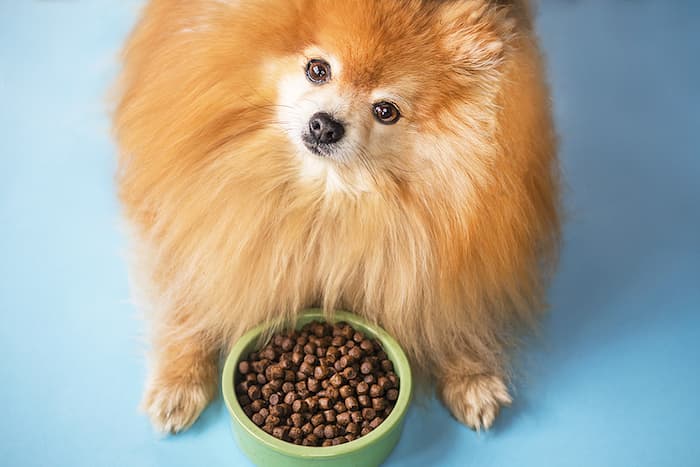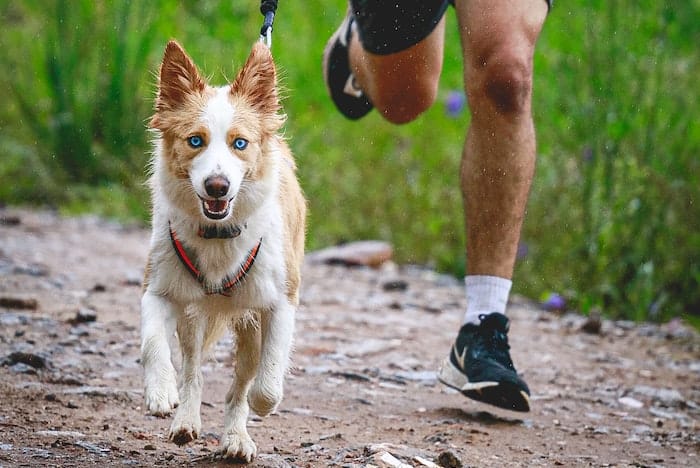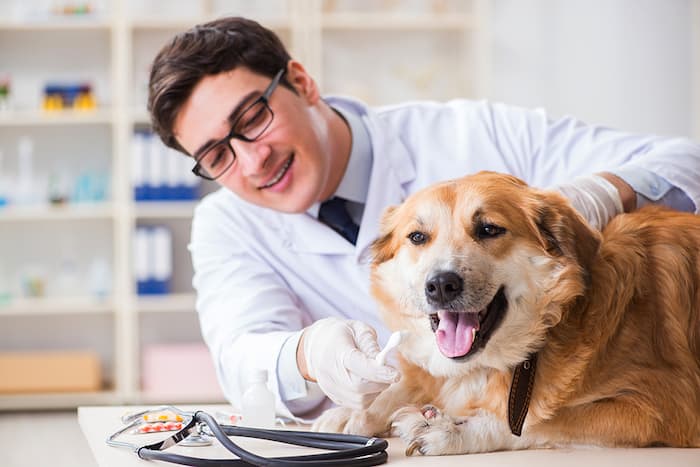Embracing the presence of a furry companion in your life promises a delightful journey, brimming with affection, happiness, and unforgettable experiences. Over time, your furry baby will mature from a spirited youngster into a cherished confidant. As a responsible caretaker, it becomes your utmost responsibility to guarantee the thriving well-being of your canine associate throughout their lifespan.
Much like humans, dogs undergo various natural changes in both physique and demeanor as they advance in age, necessitating particular attention and nurturing. In this post, we will delve into priceless pointers and expert guidance aimed at maintaining your dog’s well-being as they mature, ensuring a lively and gratifying existence for your adored quadruped companion.

1. Nutrition
Proper nutrition plays a fundamental role in your dog’s overall well-being. Providing a balanced diet tailored to their specific requirements is of utmost importance. Consult your veterinarian for advice on the best nutrition for your dog based on its age and size. Any special health needs also factor in.
Opt for premium-quality dog food enriched with essential dog vitamins and minerals. Steer clear of offering them human food, as certain ingredients can be detrimental to dogs. Additionally, be mindful of their weight and adjust portions as needed to prevent obesity, which can lead to various health challenges.
2. Regular Activity
Consistent engagement is paramount for preserving your dog’s comprehensive well-being and good condition as they mature. Just like us, dogs require physical and mental activity to remain in peak form. Routine strolls, playful moments, and interactive pastimes serve not only to regulate their weight but also to deter any behavioral challenges that may stem from monotony or surplus energy. The degree of activity needed hinges on the breed, age, and health status of your furry companion.
Energetic and younger breeds may crave more vigorous exercises, whereas older or smaller dogs may find gentler pursuits preferable. By consistently affording your dog opportunities to stretch their limbs and stimulate their intellect, you’ll not only nurture a robust physique but also fortify the bond shared between you and your four-legged associate. So, don your walking shoes or grasp that frisbee, and let the escapades commence! Your dog will be most appreciative.

3. Mental Enrichment for a Sharp Mind
The mental wellbeing of your dog is as important as its physical health. Mental enrichment aids in preventing cognitive decline and keeps their mind active and alert. Incorporate puzzle toys, interactive games, and training sessions to challenge their intellect and problem-solving abilities. Investing quality time with your dog and using positive reinforcement during training will deepen the bond between you and maintain their mental acuity.
4. Regular Health Check-ups
Preventive healthcare is crucial in detecting potential health concerns early on and sustaining your dog’s overall well-being. Schedule regular check-ups with your veterinarian, especially as your dog matures. These visits will encompass vaccinations, dental assessments, and comprehensive health evaluations. Identifying any health issues at an early stage allows for timely intervention and better outcomes.

5. Dental Care
Oral health is often underestimated but holds significant importance for your dog’s overall vitality. Poor dental hygiene can lead to various health issues, including gum disease and organ complications. Routinely brush your dog’s teeth using dog-specific toothbrushes and toothpaste. Dental chews and toys can also aid in cleaning their teeth and preventing tartar buildup. Address any signs of dental problems, such as bad breath or difficulty eating, promptly.
6. Hydration
All living things require water to survive, and dogs are no different. Ensure your dog has access to clean, fresh water. Hydration is crucial for maintaining bodily functions, regulating body temperature, and promoting healthy skin and coat. During hot weather or periods of increased physical activity, pay closer attention to their water intake to avoid dehydration.
7. Grooming and Coat Maintenance
Grooming goes beyond aesthetics; it is an integral aspect of your dog’s health and comfort. Regular grooming helps keep their coat clean, free from tangles, and reduces shedding. Brush your dog’s coat according to their breed and fur type. This practice also allows you to inspect their skin for any signs of irritation, parasites, or skin conditions. Additionally, keeping their nails trimmed and ears clean are essential grooming practices that contribute to their well-being.
8. Providing a Safe and Cozy Environment
Creating a secure and comfortable living space is vital for your dog’s health and happiness. Ensure their bed or resting area is clean, cozy, and shielded from drafts. Offer suitable shelter from extreme weather conditions, and keep their living space free from hazards, toxins, and potentially dangerous objects.

9. Socialization and Positive Engagement
Dogs are social creatures, and they thrive on positive interactions with humans and other animals. Proper socialization helps prevent behavioral issues and ensures they grow into well-adjusted adults. Regularly expose your dog to various environments, people, and animals to build their confidence and adaptability. Always utilize positive reinforcement and rewards during socialization and training to nurture a trusting and affectionate relationship.
10. Emotional Health
Emotional well-being significantly impacts your dog’s overall health. Dogs are emotional beings, forming strong bonds with their human family members. Shower your dog with love, attention, and affection, as this strengthens the bond between you and contributes to their happiness. Spend quality time together, engage in play, and offer comforting cuddles to let them know they are cherished members of your family.
Just like humans, dogs experience emotions and these psychological factors can significantly impact their physical health. A dog’s mental health is closely linked to its behavior, energy levels and ability to cope with everyday challenges. By addressing their emotional needs, providing them with mental stimulation and creating a safe and loving environment, we can promote positive mental health in dogs. Social interactions with other dogs can help reduce stress. A happy dog is more likely to be physically healthy, display balanced behavior, and form strong bonds with its owners.
Endnote
To ensure your dog’s lifelong well-being and contentment, it requires an ongoing dedication that rewards you with unyielding devotion and boundless affection. By seamlessly integrating regular activities into their daily regimen, you foster their physical strength and agility, while mitigating potential behavioral concerns stemming from inactivity. Above all, shower your dog with love, tenderness and care, as their emotional happiness is equally paramount to their physical condition. Treasure every shared moment with your loyal comrade and cherish the extraordinary journey you undertake together.
